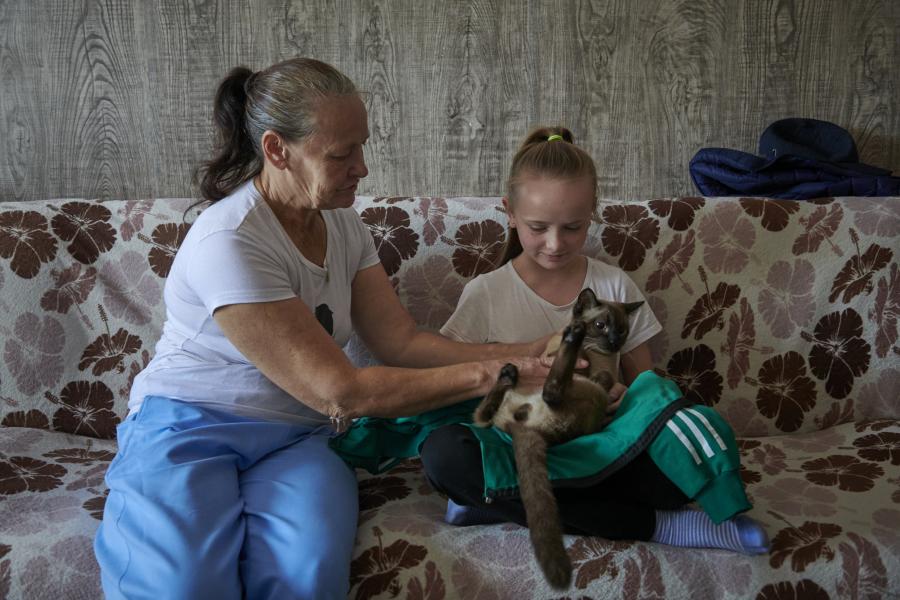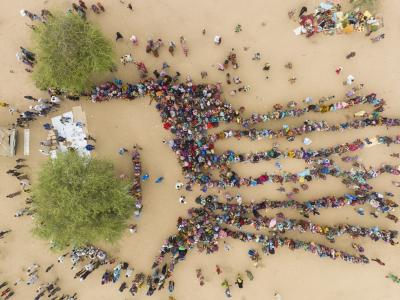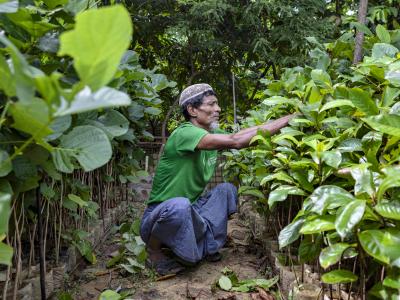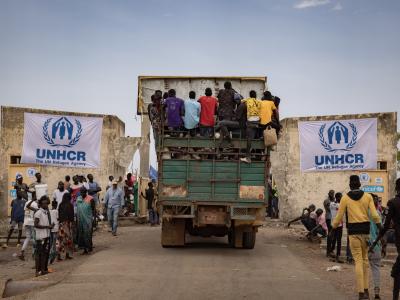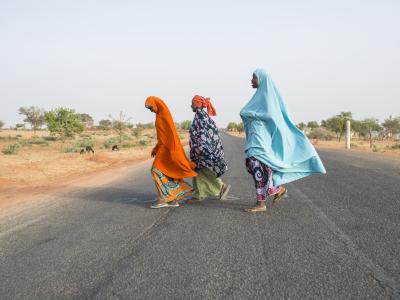In 2023, UNHCR launched the “Strategic plan 2023-2026: redoubling efforts on statelessness” with the aim of achieving transformative and measurable changes by 2026 in the reduction and prevention of statelessness and the protection of stateless persons. To this end, UNHCR intensified policy and public advocacy to encourage country-level actions and strategies, advocating for legislative reforms to grant nationality to stateless populations and prevent childhood statelessness. The Strategic Plan also envisages a multi-stakeholder approach by setting up a platform of actors committed to end statelessness, including stateless-led organizations. In this regard, the Global Alliance to End Statelessness will be launched in October 2024.
Numerous countries made advances in the fight against statelessness in 2023. Kenya formally recognized the Pemba as an ethnic community, resulting in approximately 7,000 people obtaining Kenyan identity documents. Kazakhstan confirmed citizenship to 1,622 stateless persons and Uzbekistan recognized 4,993 stateless persons as citizens. In 2023, the first phase of a joint project between the Philippines and Indonesia came to an end, facilitating the confirmation of nationality for 8,745 people of Indonesian descent in the Philippines. In the United Republic of Tanzania, more than 3,300 individuals at risk of statelessness from historical migrant communities were granted Tanzanian nationality. Since the beginning of the #IBelong Campaign to end statelessness in 2014, 550,000 people have acquired a nationality. In 2023, 32,150 individuals who were formerly stateless or of undetermined nationality were able to acquire or confirm their nationality. 2023 was the second year in a row when the number of cases of statelessness that have been resolved has shown a downward trend.
UNHCR operations advocated for strengthening legal and policy frameworks on statelessness and provided technical support and assistance. In 2023, 14 States improved their laws, policies and procedures to prevent and reduce statelessness, one short of UNHCR’s target of 15. Several countries, including the Republic of Moldova, North Macedonia, the Kyrgyz Republic and the Bahamas, introduced legal amendments to ensure that children are not born into statelessness and do not inherit it from their parents. Brazil's constitutional amendment prevented the loss of Brazilian nationality when acquiring another and safeguards against statelessness from renunciation. Following UNHCR’s advocacy, Colombia extended the “Children First” measure for two more years, which ensures that almost 100,000 children born in Colombia to Venezuelan parents receive recognition of Colombian nationality, mitigating the risk of statelessness for them.
There were also considerable achievements in the strengthening of protection frameworks for stateless persons in line with the 1954 Convention relating to the Status of Stateless Persons. The United States put into effect new policy guidance to assist stateless individuals, while Portugal approved legal amendments with a view to establishing a statelessness determination procedure. In Georgia, legal amendments were adopted to reduce the residence requirement from 10 to five years, facilitating naturalization for stateless persons in line with international standards.
In 2023, the Republic of the Congo became State party to both statelessness conventions. While two more accessions were expected, other countries – including Sao Tome and Principe, South Sudan and Slovenia – with support from UNHCR, took concrete steps towards becoming parties to one or both statelessness conventions, with respective accessions expected in 2024. In particular, Sao Tome and Principe approved accession to both conventions in 2023, and consequently deposited accession instruments in January 2024.
Significant achievements took place at the regional level, in particular in Africa. A regional model law on statelessness determination, the protection of stateless persons and naturalization was prepared with support by UNHCR and endorsed by the technical level experts of the Economic Community of West African States and the Economic Community of Central African States. In addition, the finalized draft “Protocol to the African Charter on human and people’s rights relating to the specific aspects of the right to a nationality and the eradication of statelessness in Africa” was submitted for consideration to the African Union Specialized Technical Committee on Migration and then to the Specialized Technical Committee on Justice and Legal Affairs, which adopted it at its ministerial segment, in December 2023. It was later adopted by the AU Assembly of States in 2024. Reports on the risks of statelessness in West and Central Africa and on the prevention of statelessness in the Great Lakes region were also published.
Public advocacy is one of the prioritized actions in the new Strategic Plan. In 2023, the Global Campaign for Equal Nationality Rights, UNHCR, UNICEF, and UN Women convened a Global Summit on Gender Equality in Nationality Laws, calling for expedited action to end gender-based discrimination in nationality laws. UNHCR also supported States through advocacy for a universal reform of nationality laws that discriminate against women, including through the #IBelong Campaign. As a result, at the event, representatives of Eswatini, Iraq and Kiribati reaffirmed their commitment to achieve gender equality in their nationality laws. Currently, there are still 24 countries where women cannot confer their nationality to their children on an equal basis with men.
The 2023 Global Refugee Forum saw 135 new pledges on statelessness. There has also been progress or full achievement reported on 48% of pledges submitted since the 2019 Forum. Among the new pledges, 11 UN country teams pledged to address statelessness, a result of country-level advocacy efforts. Stronger collaboration with UN country teams and Resident Coordinators is also a key action area in the Strategic Plan. More than 80 pledges were submitted through the multi-stakeholder pledge on statelessness. This included 24 pledges by States and organizations to join the new Global Alliance to End Statelessness. Ahead of its launch in October 2024, the Global Alliance website was developed, which provides information on how to join the Alliance. At the Global Refugee Forum (GRF), 24 States and stakeholders already pledged to become members of the Alliance. Notably, the Philippines and Côte d'Ivoire pledged to join the Solution Seekers Programme. Aligned with the Strategic Plan, UNHCR has also amplified the voices of those affected by statelessness and engaged them in advocacy against statelessness, including through their participation in both events.
Challenges to Achieving Outcomes
Despite increasing commitments to address statelessness, including at the Global Refugee Forum, and the commendable efforts by many countries, some of the larger statelessness situations remain unaddressed or progress is slow. Millions of stateless persons continue to be deprived of access to basic rights and services. In many cases, statelessness is the result of discrimination that denies certain groups their right to nationality. This also emphasizes the need to address statelessness as part of broader efforts to promote human rights, including through Sustainable Development Goals.
Lack of accurate data on statelessness continues to be a challenge. To address this, the Expert Group on Refugee, Internally Displaced Persons, and Statelessness Statistics developed International Recommendations on Statelessness Statistics (IROSS), which were adopted by the UN Statistical Commission in 2023. The IROSS provides a roadmap for the inclusion of statelessness in national censuses and other surveys and facilitates greater harmonization of this data regionally and globally. Finally, the decrease in UNHCR protection staff, especially in the field has affected UNHCR’s overall capacity to address statelessness.
Financial overview
Global expenditure and budget
$67 million spent against a budget of $140 million
$73 million of unmet needs or 52% of the budget
